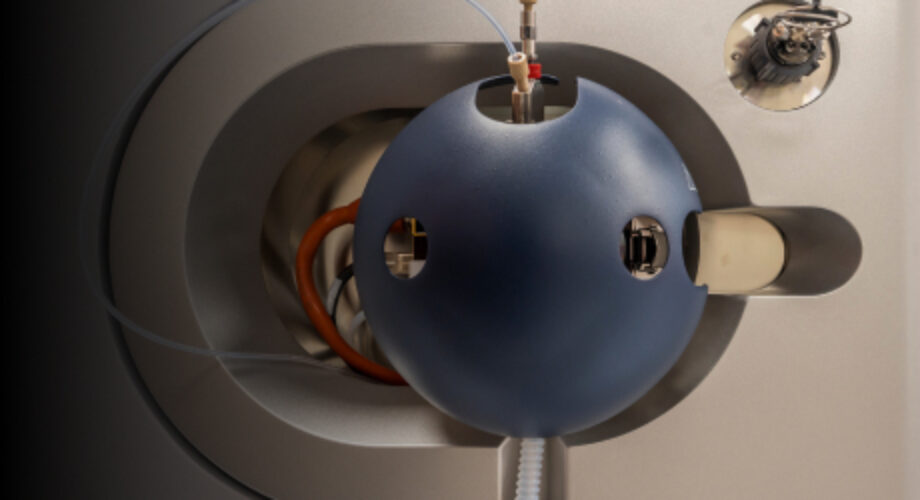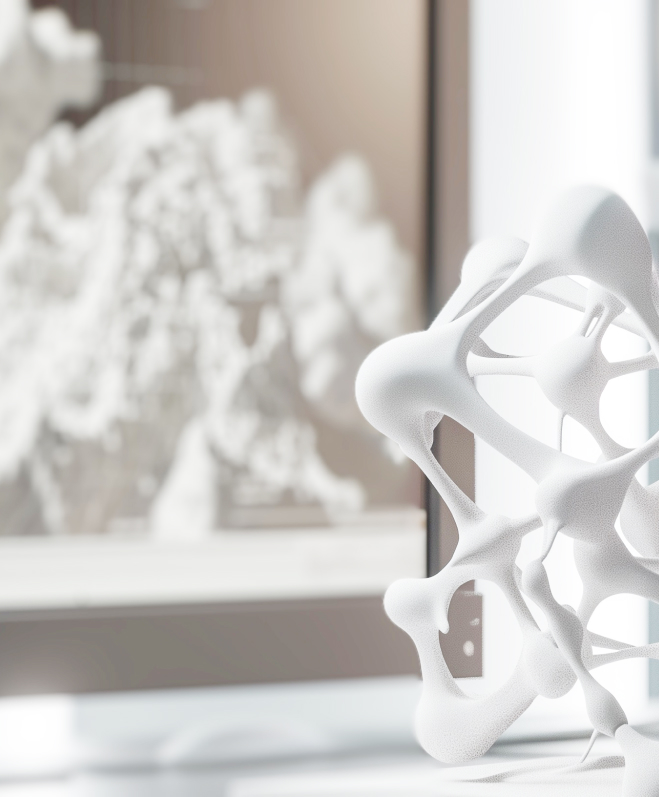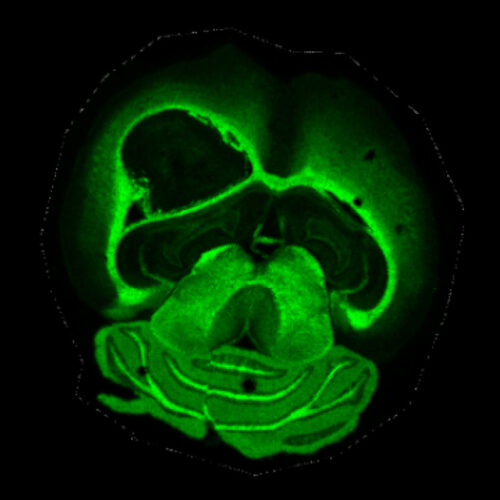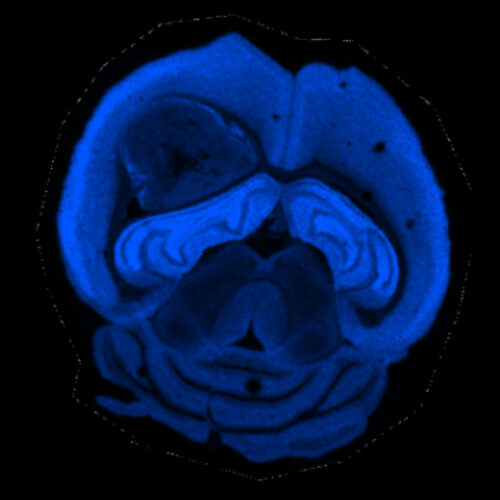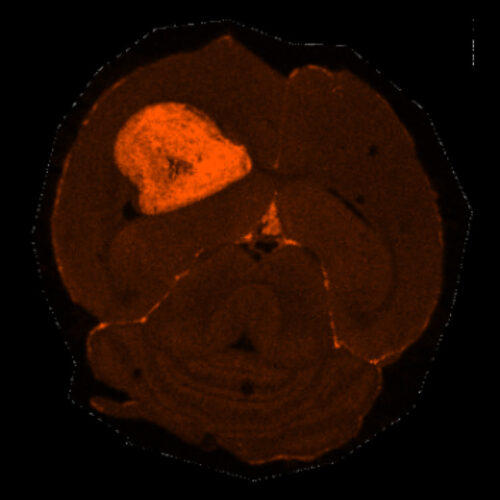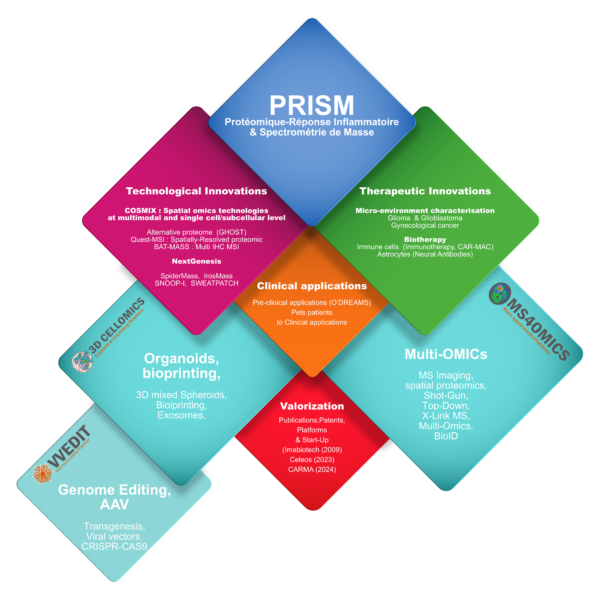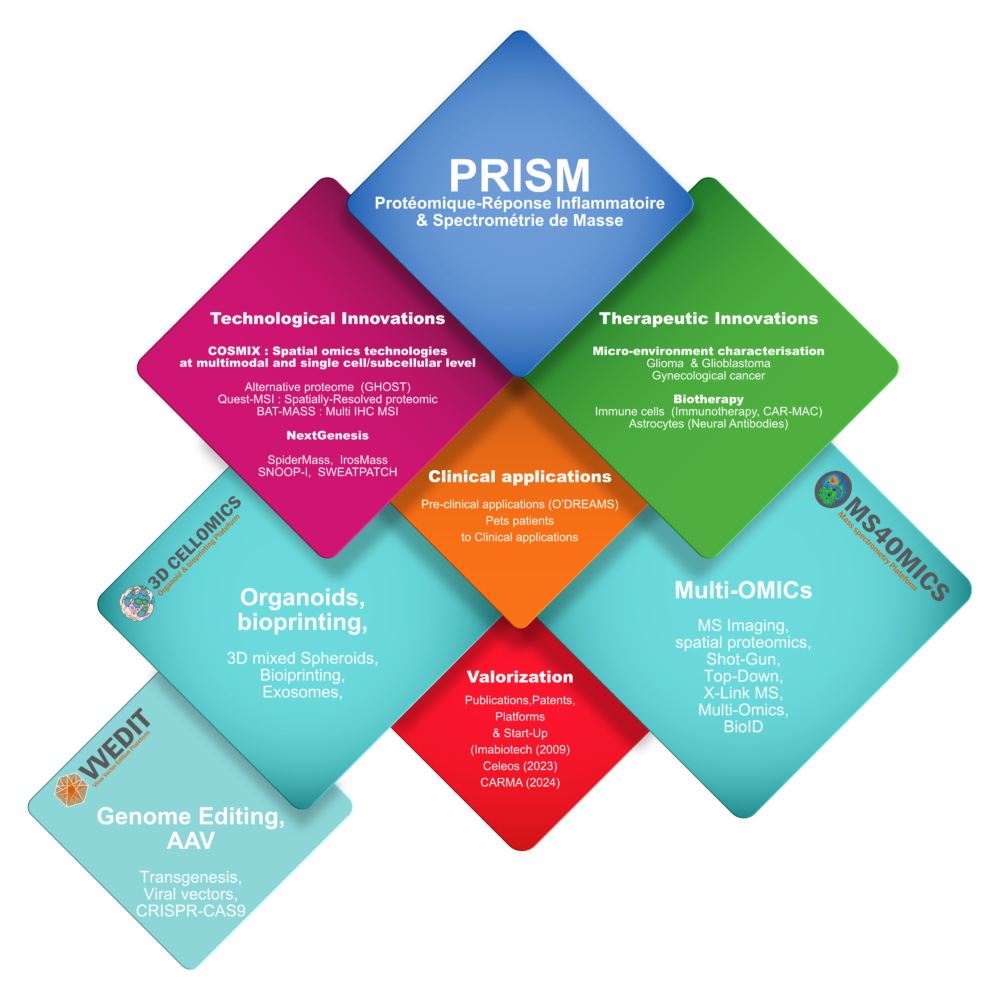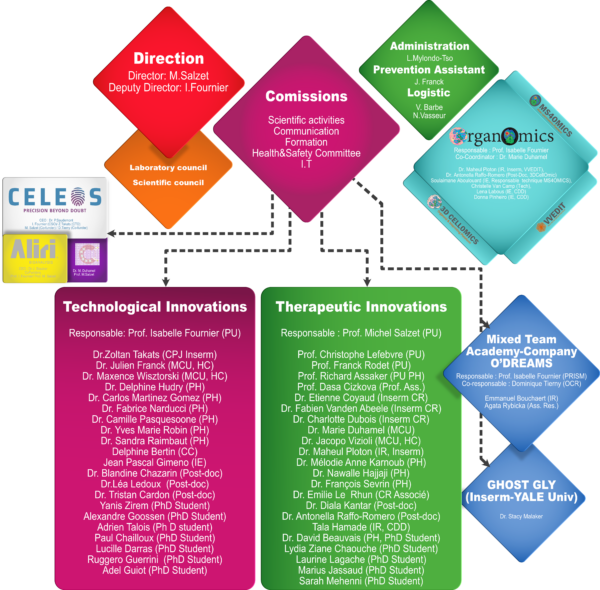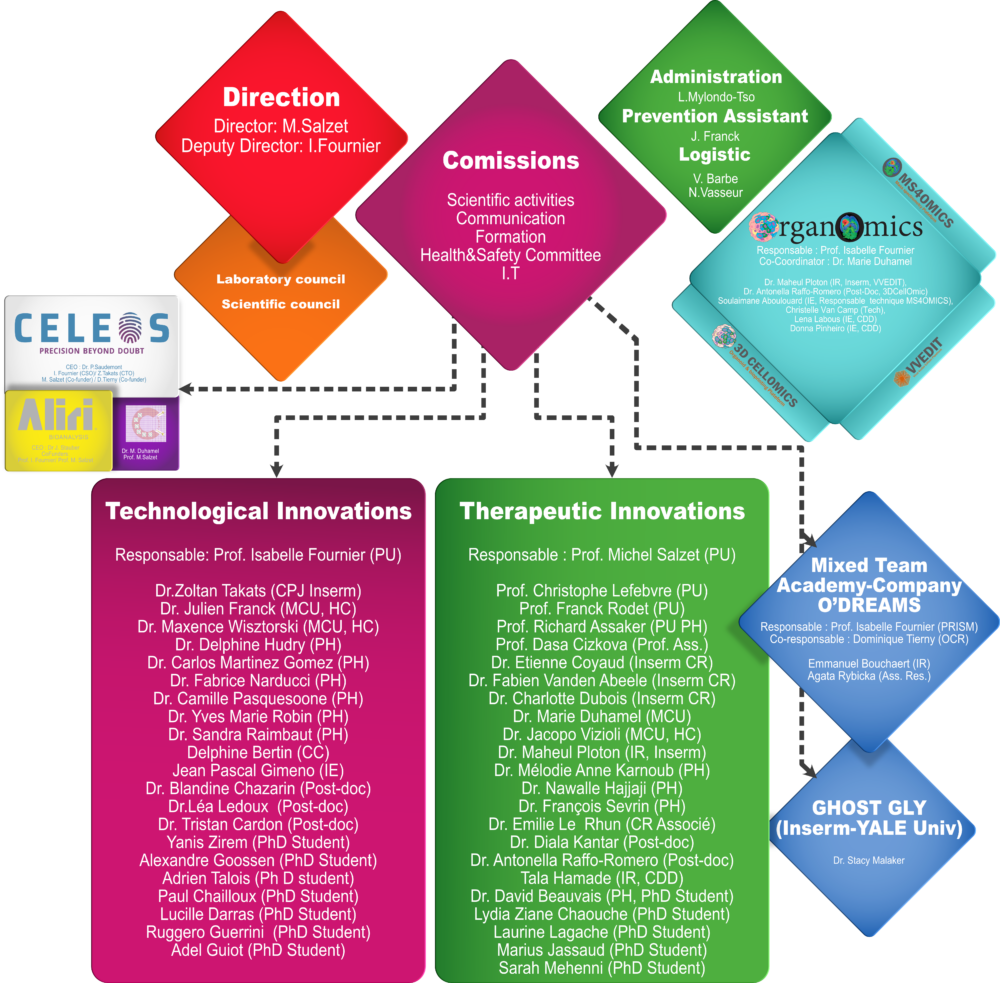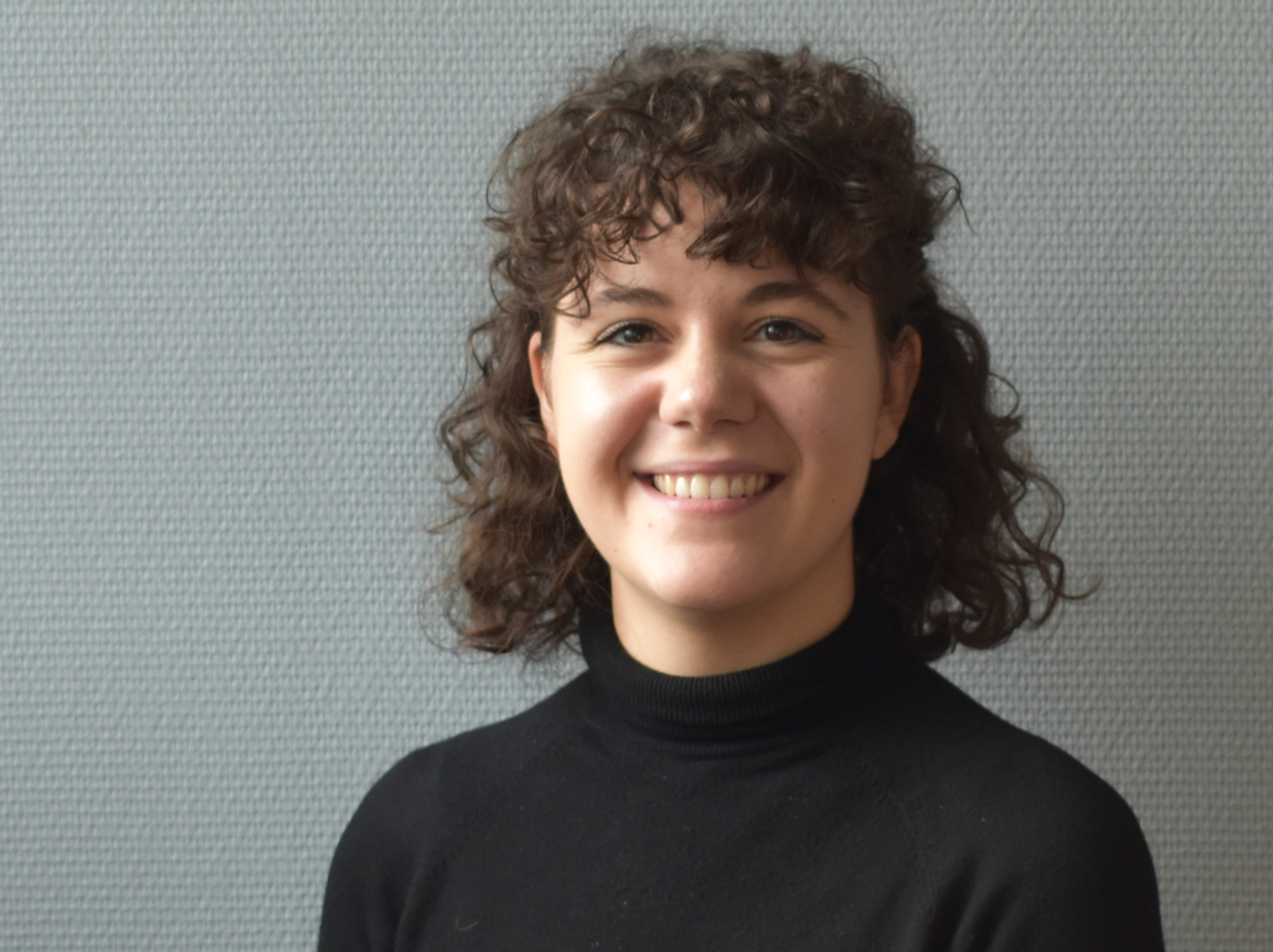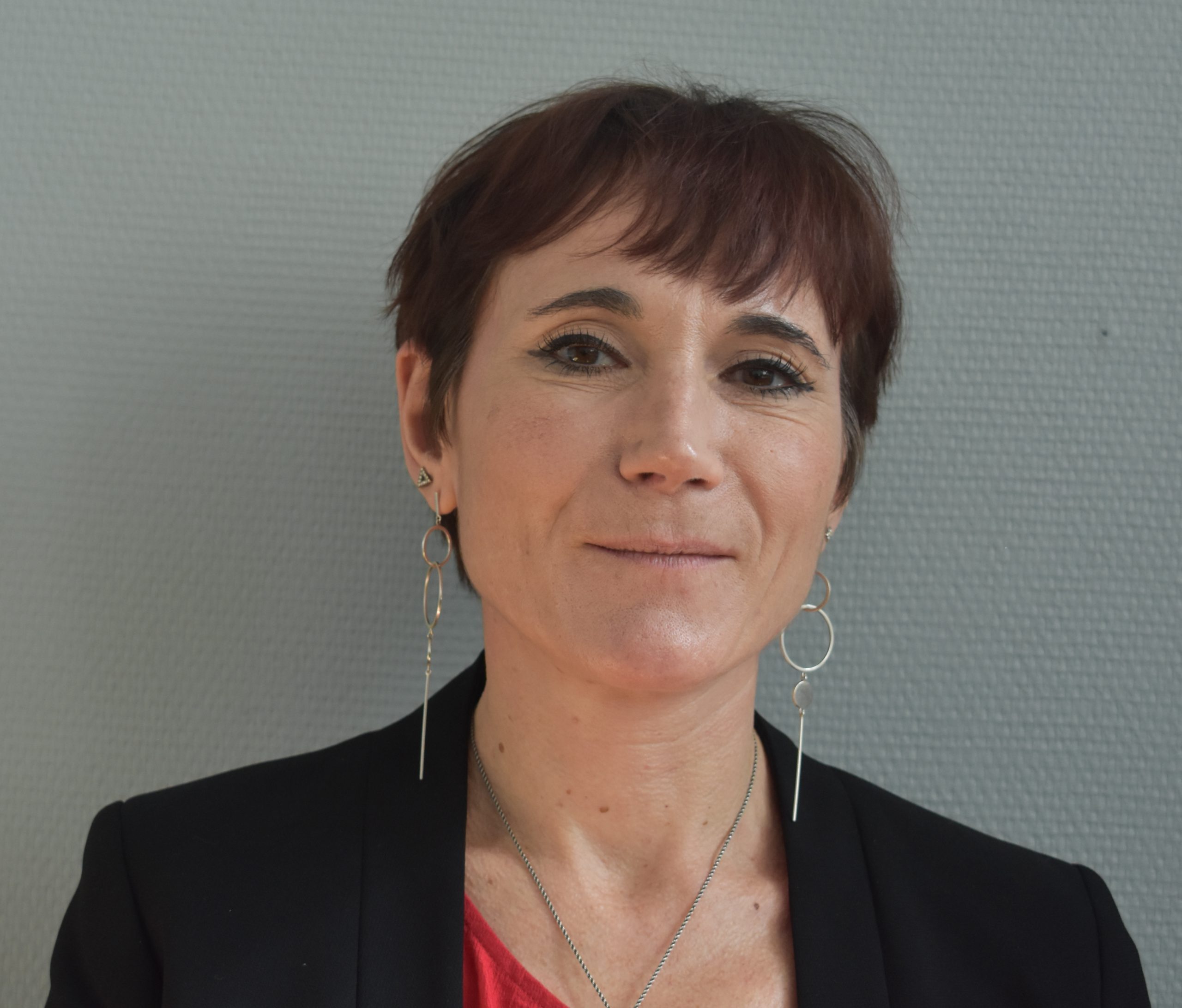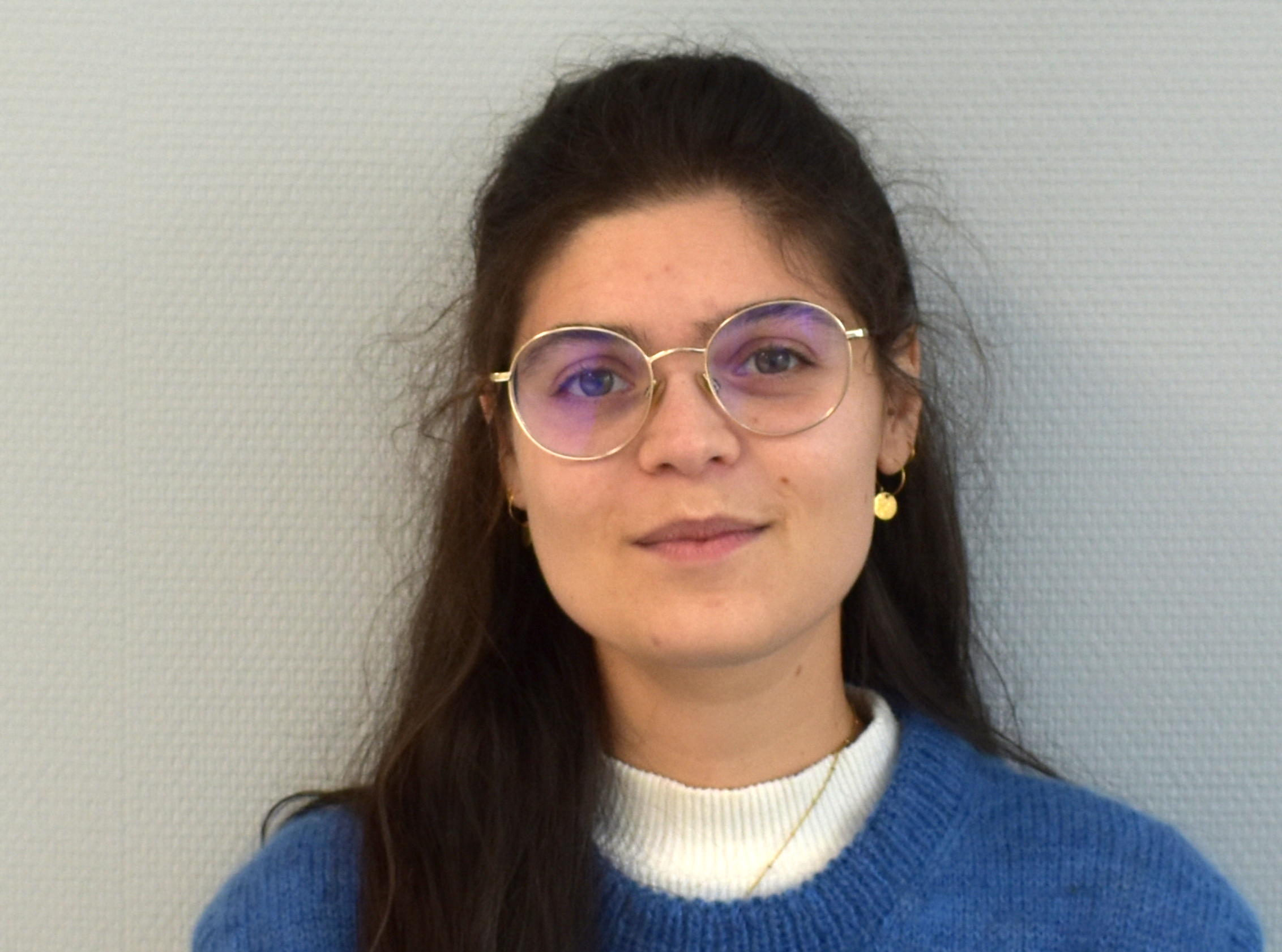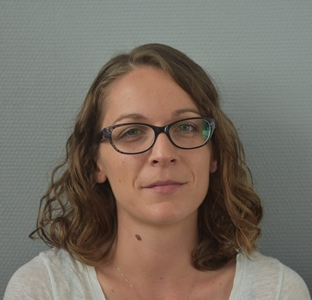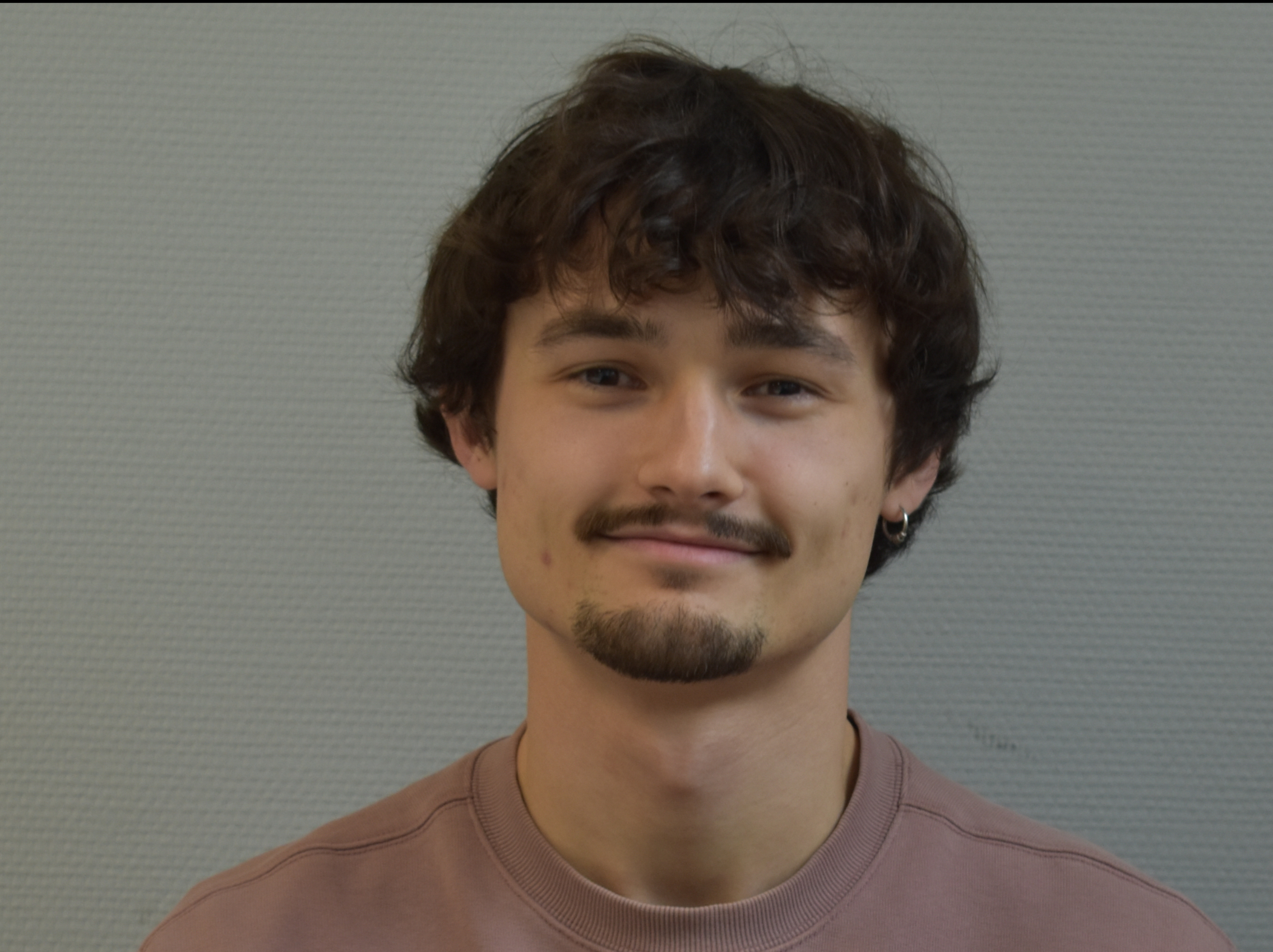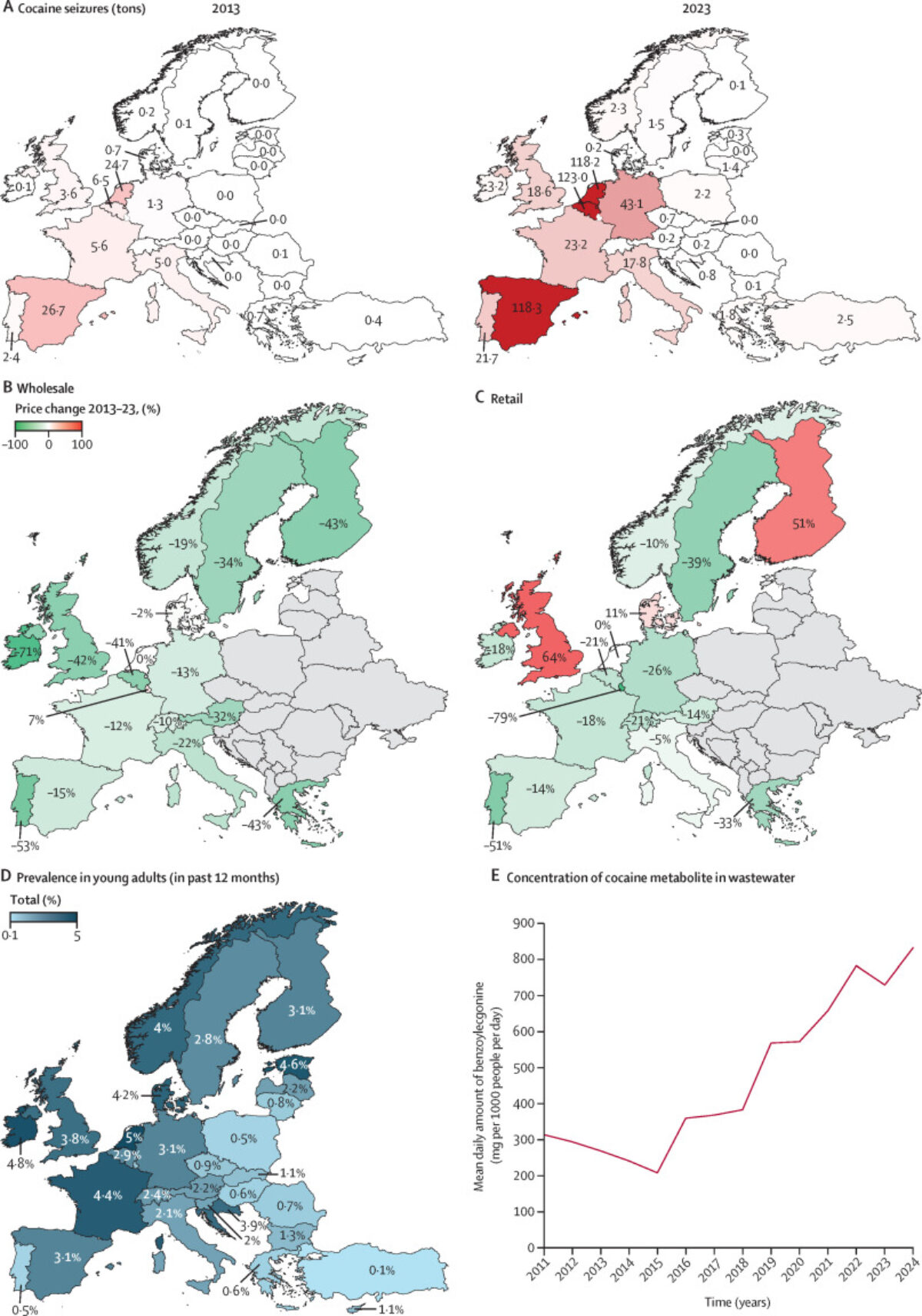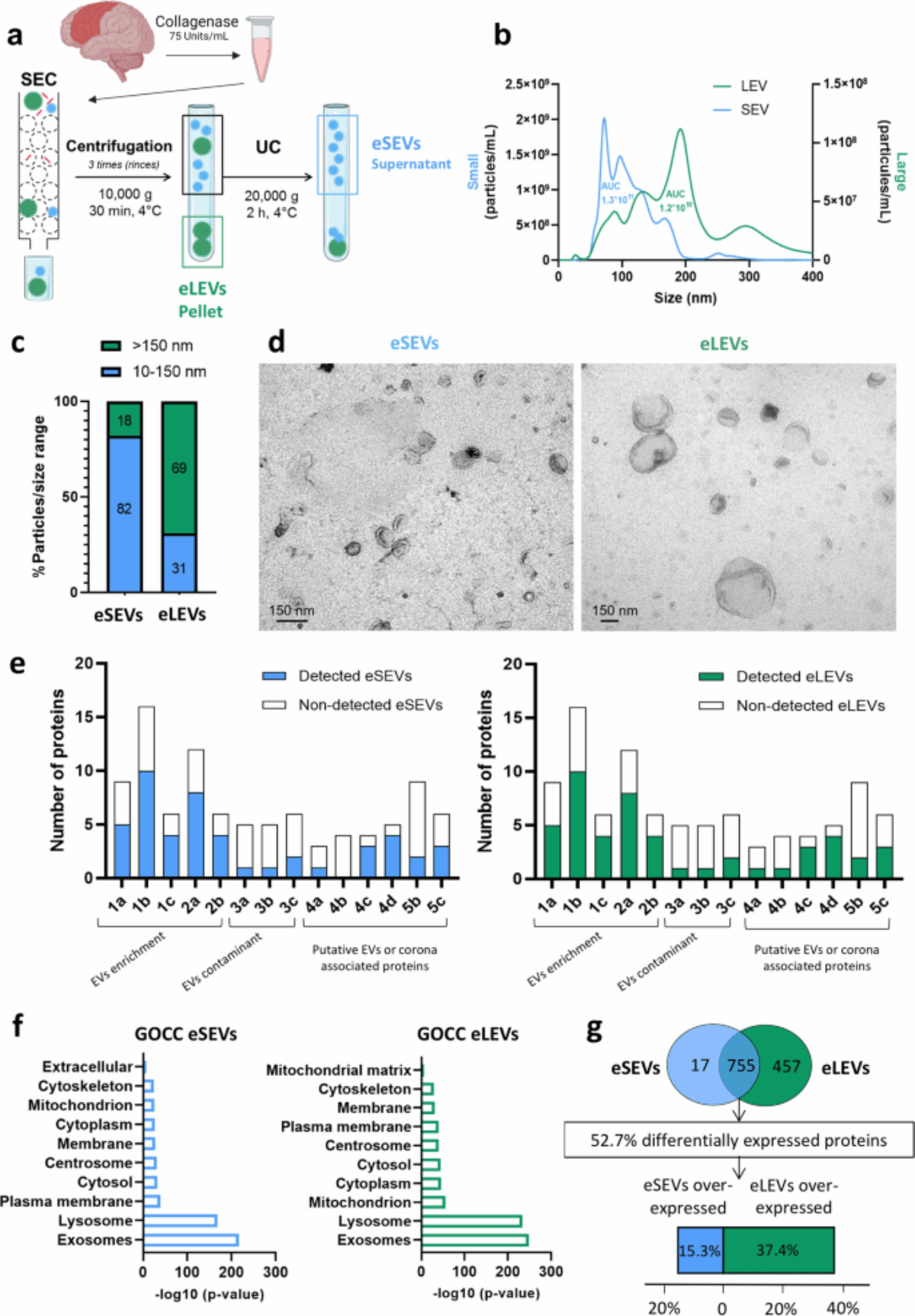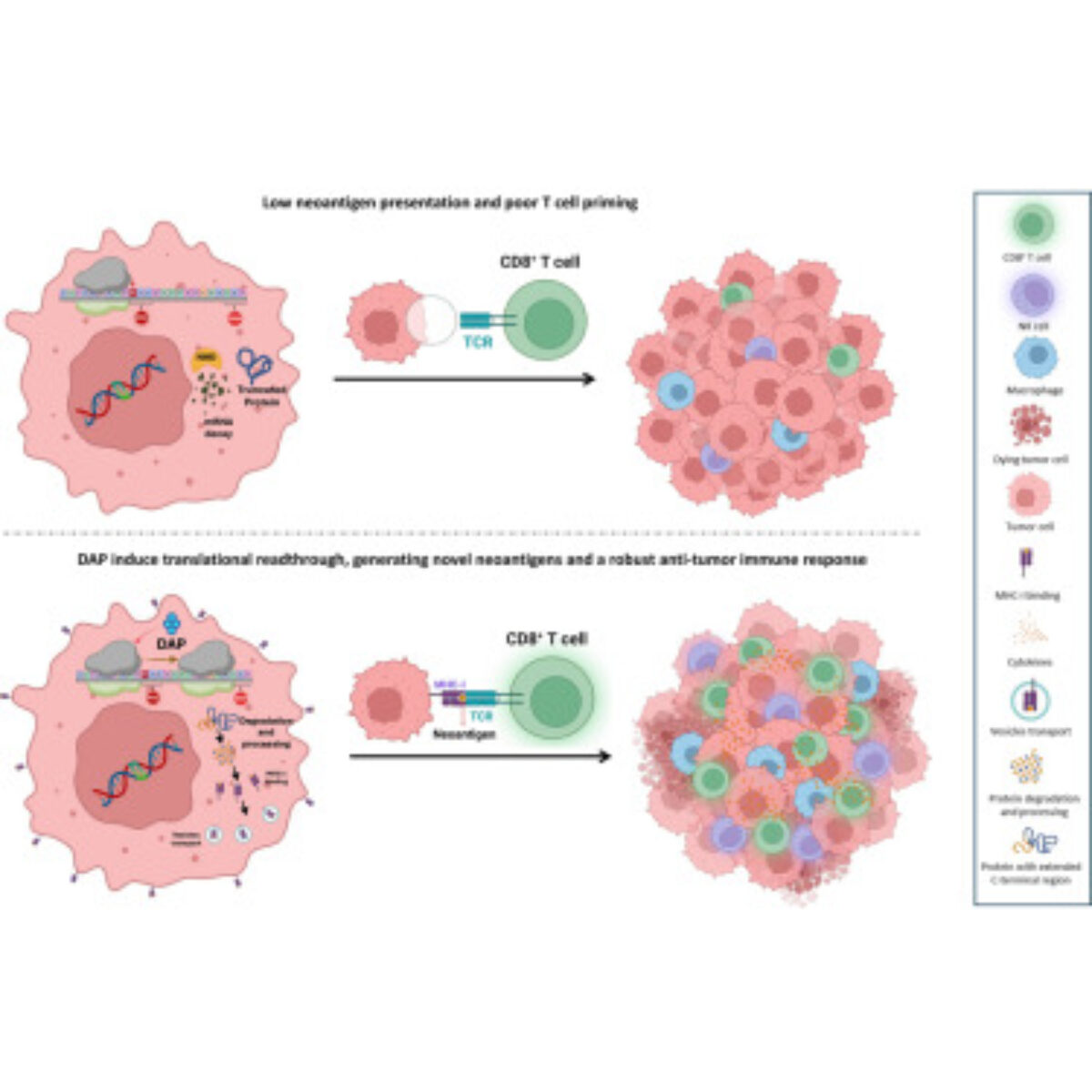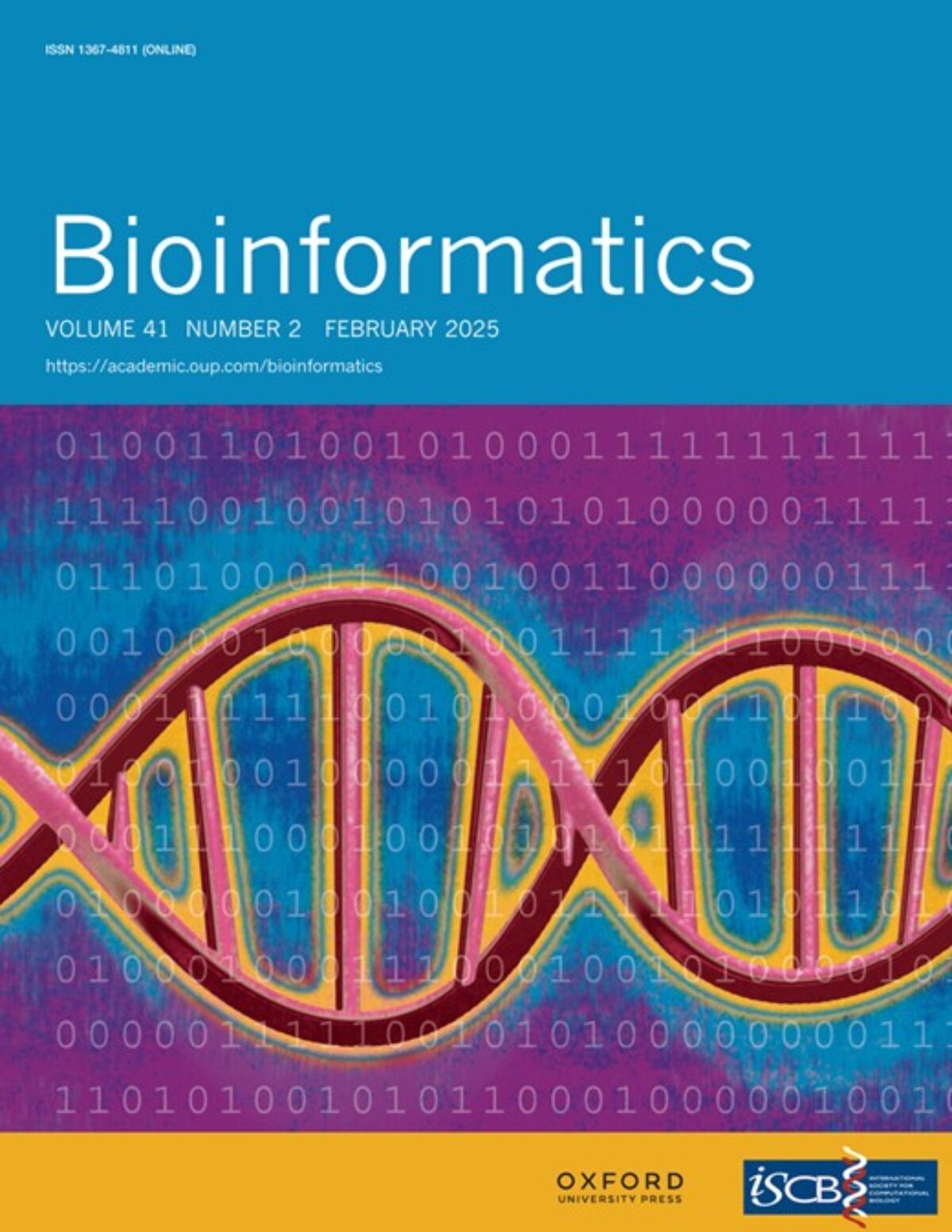The scientific ambition of PRISM remains to develop therapeutic solutions based on novel technologies to meet the clinical needs. This will be achieved by promoting a strong interplay and transversality between the two pillars. Thus, in a continuous scientific trajectory each of the pillars will be organized around 2 similar WPs addressing respectively the investigation of the tissue microenvironment (WP1) and the development of therapies (WP2).
The WP1 of pillar 1 (COSMIX) will be thus dedicated to the development of new tools to investigate the microenvironment, its heterogeneity with single cell- and spatial proteomic-based approaches.
The WP2 of pillar 1 (NEXTGENESIS) will be dedicated to the development of therapies for the next generation surgery including the robotization of the SpiderMass to tackle the challenge of minimally invasive surgery and its combination to a novel direct phototherapy that will be developed and enabling cell apoptosis in the area recognized by the SpiderMass. It will also cover the development of non-invasive diagnostic tools for large-scale early diagnosis of BC and based on the detection of Volatile vOrganic Compounds (VOCs) by Mass Spectrometry and last generation sensors.
Pillar 2, WP1 will be devoted to creating complex 3D models for drug and/or immunotherapy tests before preclinical essays on pet patients followed by clinical trials in human (BREASTMO), on one hand, and on the other hand, to investigating the role of nerve fiber in the tumor microenvironment and the involvement of tumor EVs in the crosstalk with the immune cells and in the brain metastatic niche in BC (NEUROCAN).
Lastly, Pillar 2 WP2 (CARMA, PRODIGY) will be tackling the development of novel immunotherapy and strategies to improve their efficiency.
PRISM is associated to the Department of Surgery and Cancer of Imperial College London (ICL) through a European Associated Laboratory (LEA LANCET) supported by Inserm and to the Department of Chemistry of Yale as an Inserm-ULille International Research Project (IRP GHOSTGLY).
PRISM has a join laboratory with the OCR company (www.oncovet-clinical-research.com/). This mixed private/public team (O’DREAMS, Oncological Driven associated Mass Spectrometry) is financially supported by the Regional Council of Hauts-de-France and EU through FEDER funding. O’DREAMS has led OCR to obtain a support from France Relance 2030 scheme.
PRISM also includes a core facility OrganOmics based on competences derived from technological innovations research of the lab. It includes 2 service platforms, one for mass spectrometry-based proteomics (MS4Omics) and a second one (3DCellOmics) for 3D cell culture models such as complex organoids with immune cells, fibroblast, microbiota or explants for drug efficiency tests and exosome studies such as for development of therapeutic agents or for diagnosis. The platform offers services to compagnies as well as academics. VVEDIT is a new emerging platform in OrganOmics dedicated to genome editing, transgenesis and viral vectors production.
Finally, PRISM developments have led to the creation of two spin-off companies, IMABIOTECH (MS imaging) in 2009 and in 2023 CELEOS (SpiderMass technology). A new spin-off CARMA on CAR-Macrophages biotherapy is under incubation as well.
